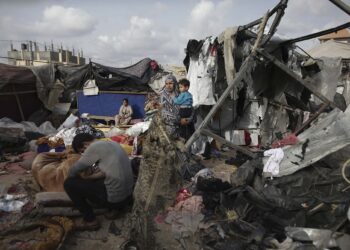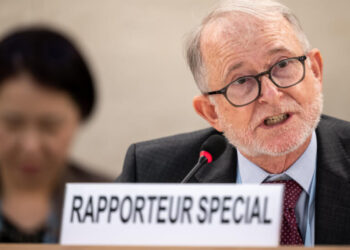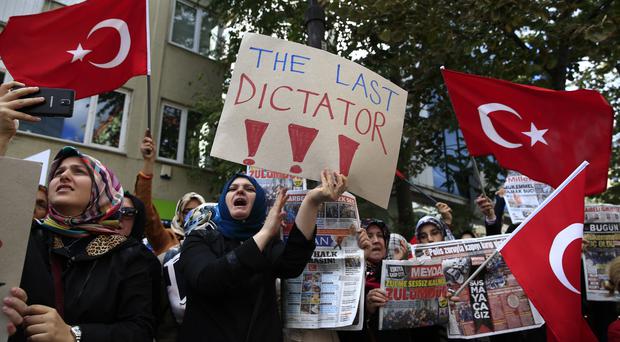Human Lives Human Rights: This prejudiced attitude has found support, whether direct or indirect, from governments championed as bastions of freedom, including one notably labeled as the “sole democracy in the Middle East.” The world is now witnessing a fervent demand for a ceasefire in response to Israel’s assaults on residential areas, hospitals, schools, mosques, and churches in the Gaza Strip. The deliberate targeting of the Al-Aqsa Mosque and the cherished values of the Palestinian people has intensified the call for an immediate halt to these attacks.
Regrettably, human rights violations persist in the occupied Palestinian territories since October 7, when a Palestinian resistance group launched an unexpected offensive against Israel. The conflict has resulted in the tragic loss of over 20,000 Palestinian lives, including at least 8,000 children and 6,200 women, with more than 52,600 individuals sustaining injuries. Gaza, bearing witness to widespread destruction, including civilian infrastructure like hospitals, educational institutions, and places of worship, remains in dire straits. Israeli Defense Minister Yoav Gallant’s declaration on October 9, imposing a complete siege on Gaza and blocking essential supplies, further exacerbated the humanitarian crisis.
In this grim context, Western nations, prominently the United States, have either turned a blind eye or openly endorsed Israel’s bombing campaign in the enclave, leading to civilian casualties.
Simultaneously, anti-Muslim sentiment is on the rise in Europe. Instances such as the Quran-burning provocations by a Danish far-right politician and the trampling of the Quran and Iraqi flag by an individual in front of diplomatic and public locations underscore the increasing atmosphere of hate. The UN Human Rights Council has acknowledged that these provocations fuel hate speech and contribute to heightened discrimination.
In France, the prohibition of the abaya in schools, along with the restriction on wearing headscarves during the Paris Games, has drawn criticism. The UN Human Rights High Commissioner’s spokesperson denounced these measures, emphasizing the importance of individual choices in matters of dress.
Similarly, Germany has reported alarming levels of anti-Muslim sentiment, with one in two individuals expressing or endorsing expressions containing “anti-Muslim hatred.” The Netherlands, conducting secret investigations on mosques and religious leaders, has faced criticism, leading to a pledge to learn from the experience.
In the United States, despite a decrease in overall complaints about anti-Muslim sentiment, discrimination in the education sector has risen by 33%. The introduction of the “International Islamophobia Combat Act” by three Democratic members of Congress reflects a growing concern about the global increase in anti-Muslim incidents.
A concerning revelation came to light when Swiss hackers exposed an FBI watchlist monitoring 1.5 million individuals, including children, and 2,500 mosques, predominantly with Arab and Muslim names. The Council on American-Islamic Relations filed a lawsuit against the government, highlighting privacy and civil rights concerns.
The Guantanamo Bay prison, as highlighted by the UN Special Rapporteur, continues to face criticism for human rights violations. Additionally, the FBI’s hate crime statistics for 2023 reveal an increase in violence and discrimination against Muslims in the US compared to the previous year.
In India, rising ultra-nationalist sentiments have led to arson attacks on Muslim-owned businesses and the killing of an imam by Hindu groups. Hate incidents against Muslims have surged, with reports citing over 250 such cases in the first half of 2023.
The Myanmar-Rakhine crisis continues to unfold, with the military junta disregarding human rights warnings, leading to widespread displacement and violence against Rohingya Muslims. The situation in Ukraine, stemming from the Russia-Ukraine war, has resulted in significant humanitarian challenges, including the death of children and civilians, with millions becoming refugees. The plight of Ukrainian refugees is contrasted with discriminatory policies faced by those from the Middle East and Africa, reflecting a disturbing pattern of religious, linguistic, and racial discrimination.


















